Gardening enthusiasts often seek ways to enhance their crops, and one effective method is companion planting. This ancient practice, which pairs certain plants together, can lead to more robust growth and improved pest control. For those cultivating onions, selecting the best companion plants can significantly impact their garden’s success.
Companion planting offers a natural way to create synergy in the garden. When onions are paired with the right flowers, herbs, and vegetables, they can thrive, yielding a more bountiful harvest. This article will explore the optimal companions for onions and the reasons behind these beneficial relationships.
What Are The Best Companion Plants For Onions?
Onions are a staple in many gardens, and their growth can be enhanced by the presence of certain plants. Companion planting with onions is not just about boosting growth; it’s also about fostering a healthier garden ecosystem. The best companion plants for onions include a variety of flowers, herbs, and other vegetables that can deter pests and improve soil health.
Flowers like marigolds and nasturtiums are not only visually appealing but also repel onion flies and aphids. Herbs such as chamomile and dill improve onions’ flavor and vigor while attracting beneficial insects. Vegetables like lettuce and carrots can be interplanted with onions—they don’t compete for nutrients and can help to retain soil moisture.
The concept behind companion planting is simple yet scientific. It’s based on the idea that certain plants can provide mutual benefits when grown in close proximity. These benefits range from pest control to soil enrichment and even improved crop productivity.
When selecting companions for onions, gardeners should consider the specific traits each plant brings to the table. This strategic approach not only maximizes the use of garden space but also promotes a balanced and productive ecosystem.
Let’s delve deeper into the types of plants that serve as excellent neighbors to onion crops.
Which Flowers Enhance Onion Growth?
Flowers can be more than just decorative elements in an onion garden; they can play a critical role in enhancing onion growth. Their bright colors and fragrances attract pollinators, which are essential for many crops, and repel harmful pests.
Marigolds are famous for their ability to ward off nematodes and onion flies with their strong scent. Calendula, another great choice, attracts beneficial insects while adding a splash of color. Asters and chrysanthemums, with their daisy-like blooms, not only beautify the garden but also deter many types of insects that could harm onion plants.
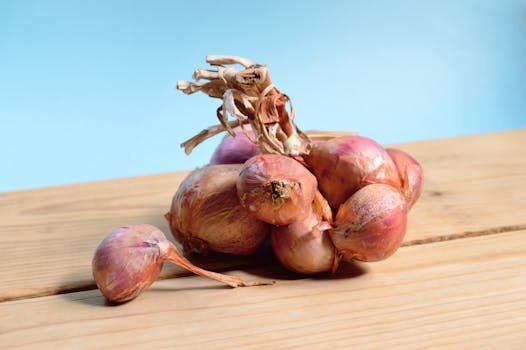
These flowers contribute to a healthy garden environment by serving as a natural and sustainable form of pest control. As a result, onions can grow larger and healthier without the need for chemical insecticides.
Moreover, companion flowers can act as a living mulch, shading the soil and helping to retain moisture, which is beneficial during the drier months.
Incorporating the right flowers into an onion patch is not just about aesthetics; it’s a strategic move that supports the overall health and output of the garden.
What Herbs Go Well With Onions?
Herbs are not only useful in the kitchen but also in the garden as companions to onion plants. These aromatic plants bring a plethora of benefits, such as pest deterrence, improved flavor, and even soil enrichment.
- Chamomile, with its soothing fragrance, improves the growth and flavor of onions.
- Dill attracts wasps that prey on onion pests while enhancing growth.
- Parsley serves as a natural barrier, warding off insects that might otherwise target onions.
- Mint, known for its strong scent, can repel a variety of pests, though it should be grown in containers to prevent it from becoming invasive.
When planting herbs alongside onions, gardeners should consider the specific pests they’re hoping to repel and the additional culinary benefits the herbs may provide.
It’s important to remember that while herbs can be beneficial, they also need their own space and care. Overcrowding can lead to competition for resources, so proper spacing and consideration of growth habits are essential.
Integrating herbs into an onion garden can create a dynamic and symbiotic environment that supports both the health of the crops and the diversity of the garden.
What Vegetables Should You Plant With Onions?
Companion vegetables can play a significant role in the success of onion crops. These companions can help onions by deterring pests, improving soil structure, and even enhancing flavor.
Lettuce, for example, is a shallow-rooted vegetable that retains moisture in the soil, benefiting both the lettuce and the onions. Beets and onions can be planted together as they do not compete for space or nutrients. Carrots are another good companion, confusing root flies that might otherwise target either crop.
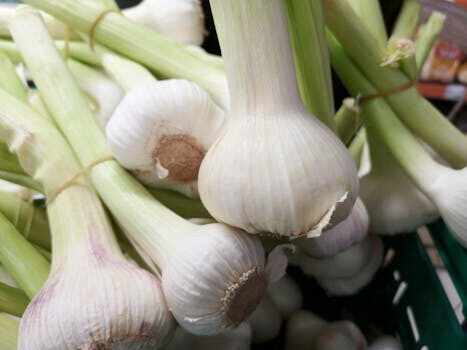
Choosing the right vegetables to accompany onions is about understanding the interactions between different plant species. Plants that have similar water and nutrient needs can be good companions, as they will thrive together without competing.
Onions also benefit from being planted with other strong-flavored vegetables, such as cabbage and broccoli, as they can mask each other’s scent, making it harder for pests to locate their targets.
Creating a diverse vegetable garden with onions and their compatible companions can lead to healthier plants and more abundant harvests.
What Are The Worst Companion Plants For Onions?
Just as some plants enhance the growth and health of onions, others can be detrimental. It’s crucial to be aware of these bad companions to prevent issues such as disease, pest infestations, and competition for resources.
Plants that belong to the legume family, including beans and peas, should not be grown close to onions because they can inhibit each other’s growth. Similarly, asparagus and onions do not make good neighbors due to conflicting root systems and nutrient requirements.
Other members of the allium family, such as garlic and leeks, should also be planted separately from onions. This is because they are susceptible to the same diseases and pests, which could spread more easily if the plants are grown too close together.
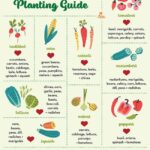 Best companion plants for strawberries: flowers, herbs and veg to grow alongside strawberries
Best companion plants for strawberries: flowers, herbs and veg to grow alongside strawberriesAvoiding these incompatible pairings is vital for maintaining a healthy and productive onion garden. By understanding which plants to keep apart, gardeners can prevent unnecessary setbacks and encourage better overall crop success.
Why Is A Companion Crop Often Grown With Onions?
Companion cropping is a time-honored agricultural practice that brings multiple benefits to the garden. Onions are often grown with companion crops because they can offer natural pest control, improve the soil, and even enhance the flavor of the onions.
Marigolds, for example, release a substance from their roots that is toxic to nematodes, protecting not only the onions but also other plants in the vicinity. Herbs like basil and thyme can deter a variety of pests with their strong scents while attracting beneficial insects.
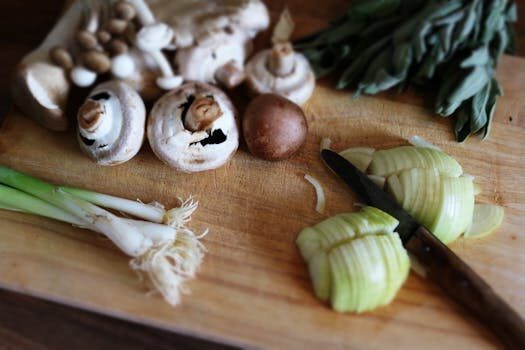
The reasoning behind companion cropping is both ecological and practical. It makes the most of available garden space and promotes biodiversity, which can lead to a more resilient garden ecosystem.
Gardeners who use companion crops with their onions can expect a more balanced garden, one that is less reliant on chemical pesticides and more conducive to organic gardening methods.
Incorporating companion crops is not just about individual plant benefits—it’s about creating a holistic environment where all plants support one another for mutual success.
How Does Companion Planting Benefit Onions?
Companion planting is a strategy that can significantly benefit onion crops. The right plant pairings can lead to healthier growth, improved pest management, and better soil conditions.
One of the primary benefits of companion planting is natural pest control. Certain plants can repel onion-specific pests, reducing the need for chemical pesticides. For example, herbs like chives and garlic emit strong odors that deter onion flies.
Additionally, companion plants can enhance soil health by adding nutrients, improving soil structure, and helping to retain moisture. For instance, deep-rooted plants can help to break up compact soil, making it easier for onion roots to grow.
Furthermore, companion planting can increase overall crop productivity. By creating a diverse garden ecosystem, plants can support each other’s growth, leading to larger and more flavorful onions.
The benefits of companion planting with onions are clear—from reducing pests to enriching the soil, this practice is an invaluable tool for gardeners looking to maximize their onion crops.
What Should You Not Plant Next To Onions?
While companion planting can offer many advantages, it is equally important to know which plants should not be placed next to onions. Certain plants can have a negative impact on onion growth due to differing soil preferences, nutrient uptake, and susceptibility to pests and diseases.
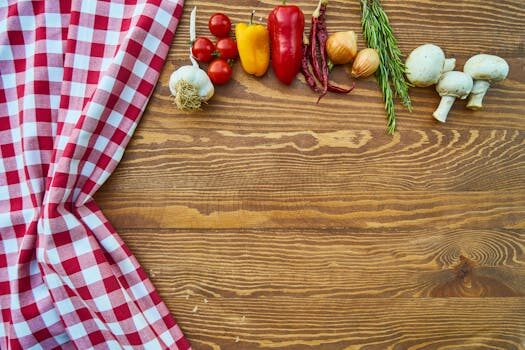
As previously mentioned, legumes such as beans and peas are not good companions for onions. These plants can hinder each other’s growth due to different soil bacteria requirements.
Similarly, plants that require a lot of nitrogen, such as corn, can deplete the soil of this essential nutrient, leaving onions with less than they need to thrive.
Understanding these relationships and avoiding planting onions next to incompatible species is crucial for maintaining a healthy and productive garden.
Exploring Companion Planting for Onions
What is the best companion plant to grow with onions?
The best companion plant for onions is likely marigolds. Marigolds repel many onion pests, including aphids and nematodes. Their pleasant appearance also adds aesthetic value to an onion garden.
Herbs such as chamomile and dill are excellent choices as well, attracting beneficial insects while enhancing the flavor and growth of onion plants.
What herb goes well with onions?
Chamomile is one of the best herbs to plant alongside onions. Not only does it improve onion flavor and growth, but it also attracts beneficial pollinators and can help to reduce fungal infections.
Dill and parsley are also great companions for onions, as they attract helpful insects and provide a natural pest deterrent.
What should you not plant next to onions?
You should not plant legumes like beans and peas next to onions. They have different soil bacteria needs and can inhibit each other’s growth. Avoid planting onions near asparagus and other alliums to prevent the spread of common pests and diseases.
Why is a companion crop often grown with onions?
Companion crops are often grown with onions to provide natural pest control, enhance soil health, and improve onion flavor. Plants like marigolds and herbs create a mutually beneficial environment that supports the growth of onions and other garden plants.
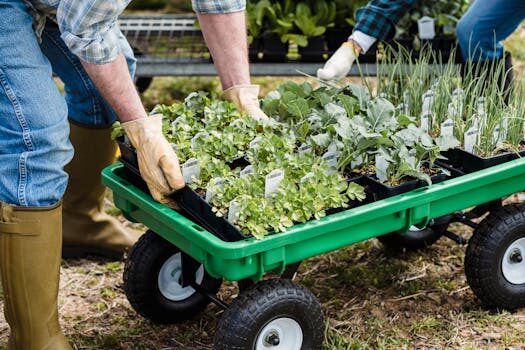
Companion planting is rooted in the understanding of plant interactions and their impact on garden health. By choosing the right companions for onions and avoiding those that could cause harm, gardeners can enjoy a more productive, sustainable, and visually appealing garden.
Check out this informative video for more insights on companion planting with onions:
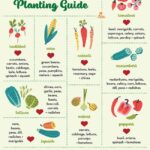 Best companion plants for carrots: herbs, flowers and veg to grow with carrots
Best companion plants for carrots: herbs, flowers and veg to grow with carrots
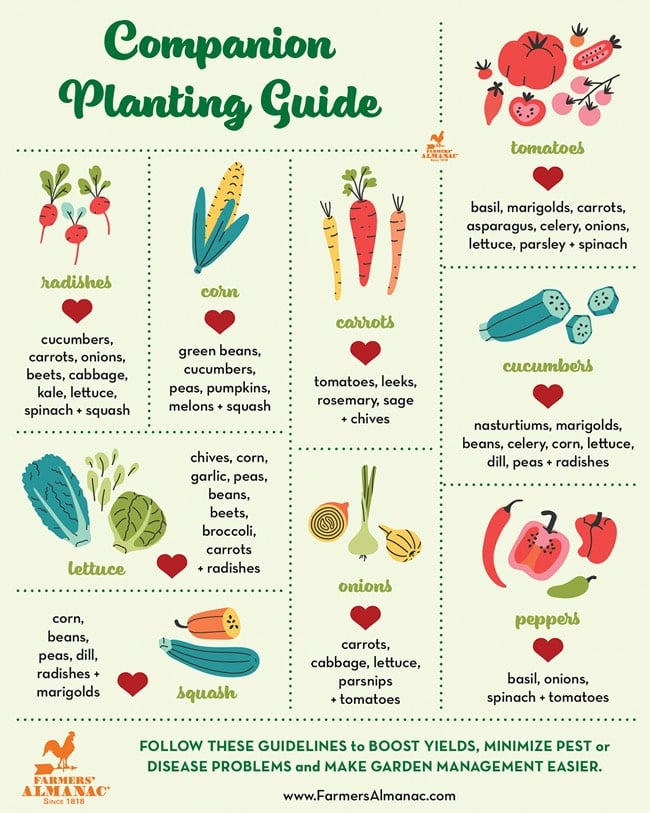
This post is such a great resource for anyone looking to up their gardening game! I love how it breaks down the benefits of companion planting with onions and offers practical tips on which plants to pair with them. It’s awesome to see how strategic plant choices can lead to a healthier and more productive garden. Can’t wait to try some of these combos in my own garden and see the results. Thanks for sharing!